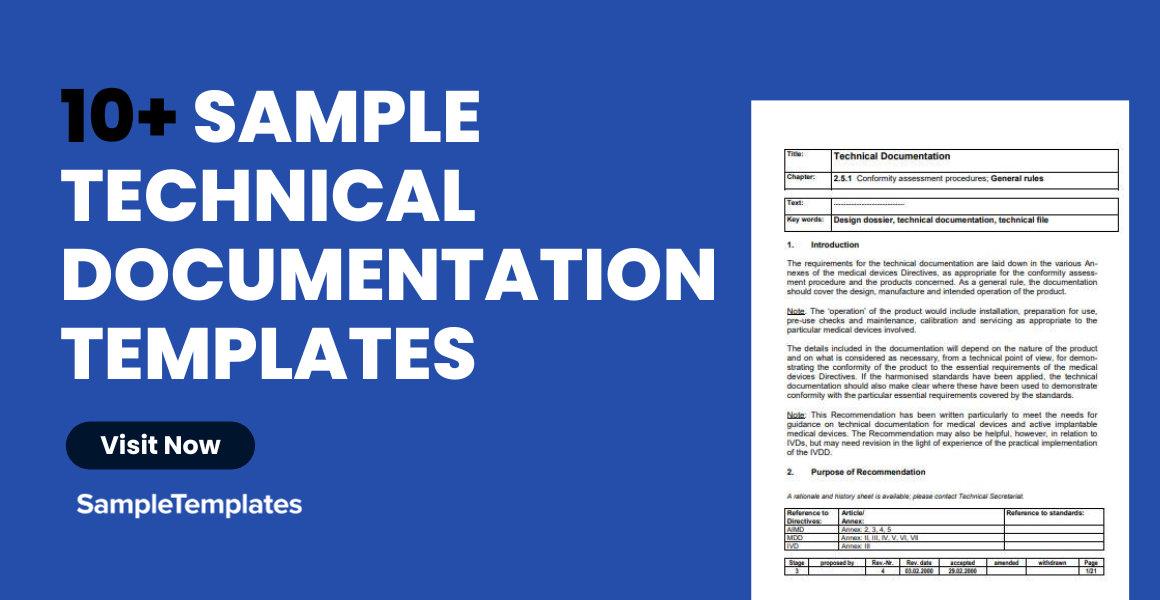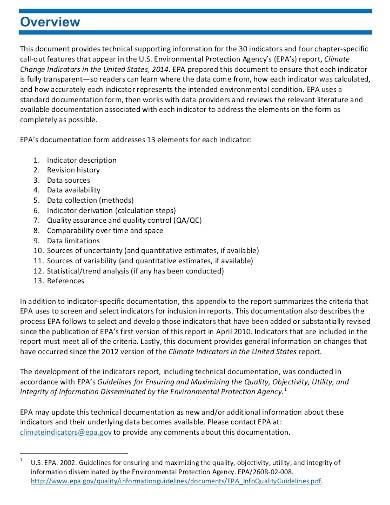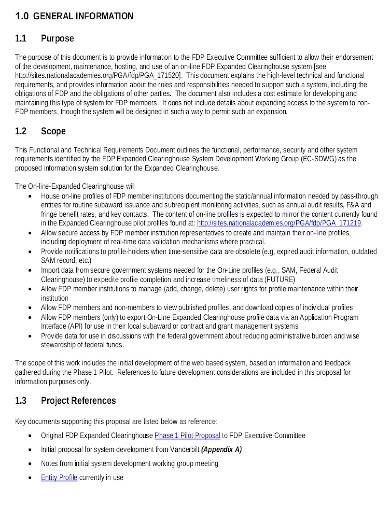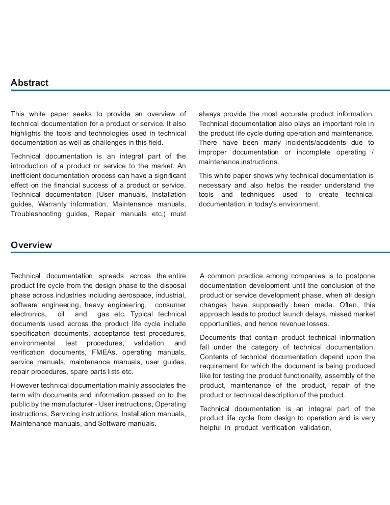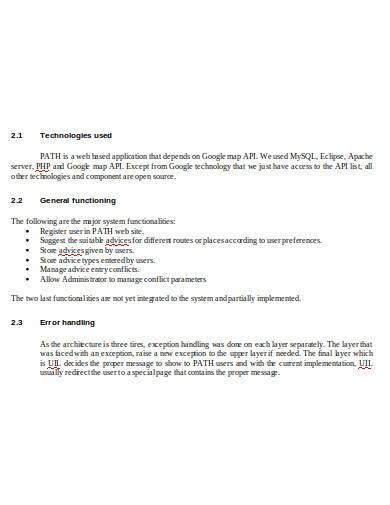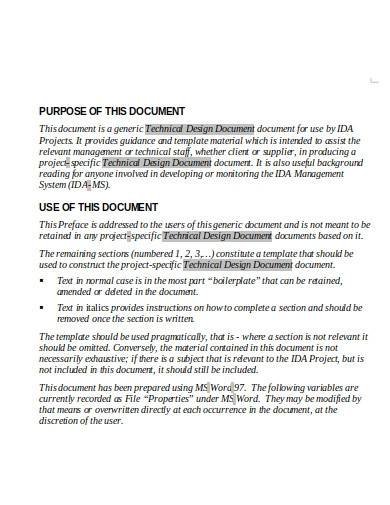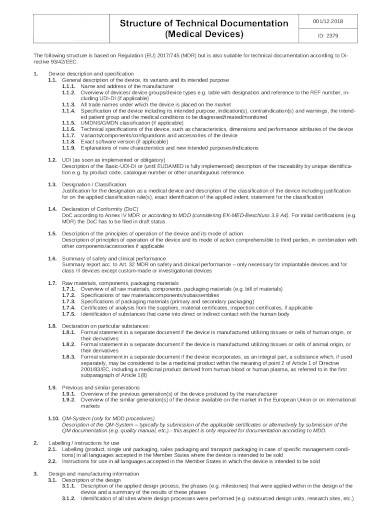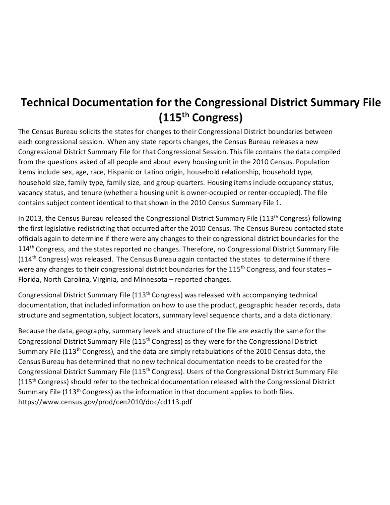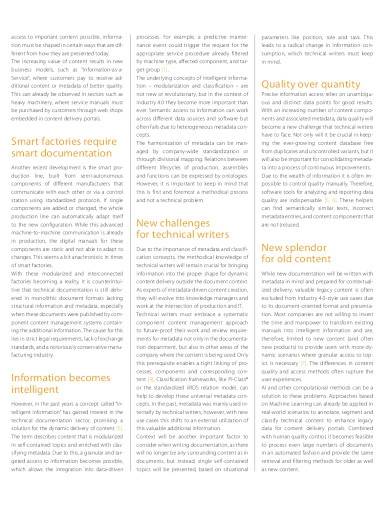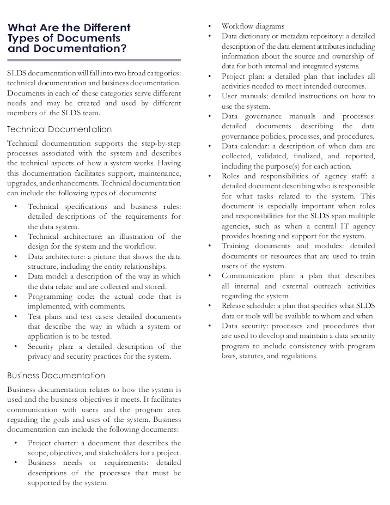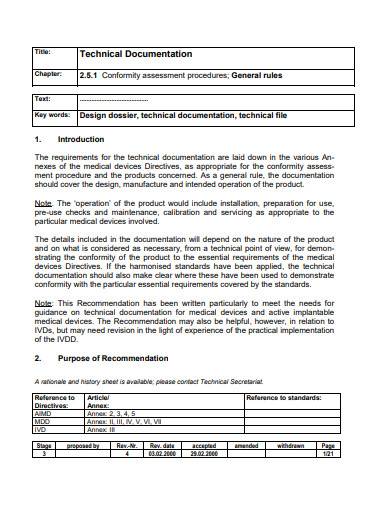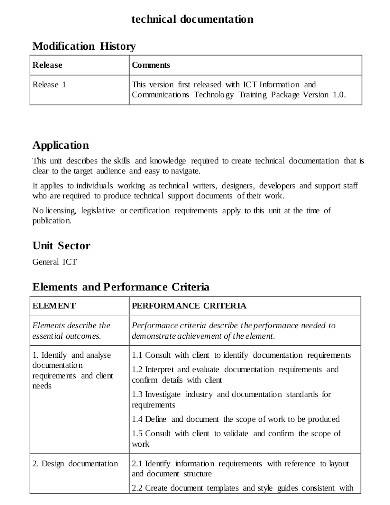Software products, whether they include simple or complex development plans and processes, must come with technical documentation. This document enables stakeholders and the development team to understand the development process of a certain software product. It also includes product software documentation and user instruction manuals for customer onboarding and utilization of the product. Technical documentation is a practice observed by different industries that provides essential information to their collaborators, clients, internal members, and end-users.
FREE 10+ Technical Documentation Samples & Templates
1. Technical Documentation Template
2. Basic Technical Documentation
3. Technical Service Documentation
4. Sample Technical Design Documentation
5. Technical Documentation Format
6. Structure of Technical Documentation
7. General Technical Documentation
8. Sample Software Technical Documentation
9. Business Technical Documentation
10. Technical Documentation Overview
11. Simple Technical Documentation
What is a Technical Documentation?
Technical documentation is a document that is created through technical writing that refers to various documents with relevant data and information about a product, whether it’s under development or already in use. This documentation can be provided in a printed or online format and written by different companies and industries like engineering, IT, medicine, or more. Technical documentation can also be produced in different forms such as screenshots, videos, diagrams, charts, and other visual representations that features modern manuals.
How to Create Technical Documentation
Technical documentation is typically created or written by technical writers with the assistance of other teams of professionals such as designers, SMEs, developers, and reviewers. Product developers can also create their own technical documentation for their software products. Technical documentation aims to help users in achieving their personal goals or business goals when using the product. This documentation explains the details of the product roadmaps and plans, design process, software architecture, and intended applications.
Step 1: Learn Who is Your Target Audience
Start by determining who your target audience is. The theme and tone of your documentation will differ from your public-facing user documents or materials. Learn more about your audience, their needs, and the type of information they are looking for.
Step 2: Determine the Type of Documents You Will Create
Once you have determined who your target audience is and what their needs are, select the type of documents you will be creating. Write enough content or information in your technical documentation to ensure the success of your project. You can categorize your choices into need-to-haves and nice-to-haves.
Step 3: Create an Outline and Write Content
After choosing the most appropriate template, you can now create your content. The template provides the outline of the information you will need to include in your documentation. You can include a reference list of your resources and make sure that your information or content is accurate, concise, and clear.
Step 4: Review Information and Update the Documentation
Make sure to include the key stakeholders in your review process when developing your materials or documents. This provides you with essential feedback. Then, update the documentation regularly especially if your product’s functionality changes in any way.
FAQs
What are the types of technical documentation?
The different types of technical documentation include product requirements, user experience design, end-user guides, project plans, product roadmaps, and test schedules. You can also use brochure templates, business memos, press releases, business newsletters, business plans, advertisements, and more for your technical documentation.
What are the tips when writing technical documentation?
If you are writing technical documentation, make sure to maintain its consistency throughout the process and optimize it for multiple platforms such as computers, web browsers, and mobile devices to give users accessibility.
What are the benefits of technical documentation?
Technical documentation helps product development teams in making quick and effective decisions, provides users with essential contexts, lessens technical support calls, keeps a record of developer ideas, provides a roadmap for potential projects, and improves communication between the stakeholders and developers.
Technical documentation in software development and engineering includes all written documents and materials related to software product development. It aims to provide a description and explanation of the product’s functionalities, consolidate information about the product, and discuss relevant questions that might arise between the stakeholders and developers.
Related Posts
FREE 6+ Sample Web Design Quote Templates in PDF
Sample Submittal Transmittal Form
FREE 6+ Sample Problem Report Templates in PDF
Sample Interview Assessment Form
FREE 9+ IT Support Contract Templates in PDF MS Word | Excel
FREE 9+ Sample Manufacturing Project Reports in PDF MS Word ...
Sample White Paper Template
Sample HR Evaluation Form
Memo Sample in Word
FREE 36+ Sample White Paper Templates in PDF
FREE 26+ Data Sheet Templates in MS Word PDF
FREE 9+ Business Requirement Sample Document in MS Word
FREE 5+ Sample General Evaluation Templates in PDF MS Word
FREE 8+ Sample Maintenance Manual Templates in PDF MS Word
FREE 7+ Sample Project Manual Templates in PDF
